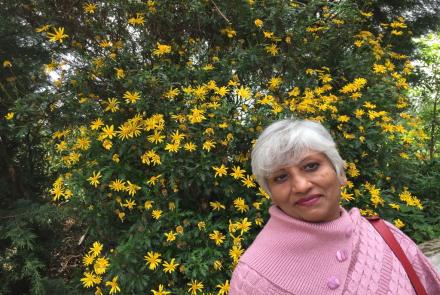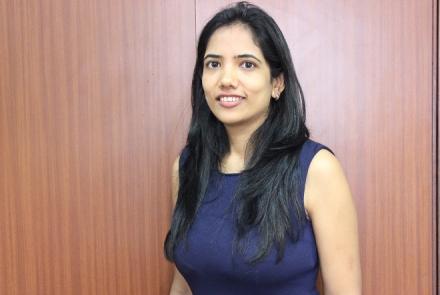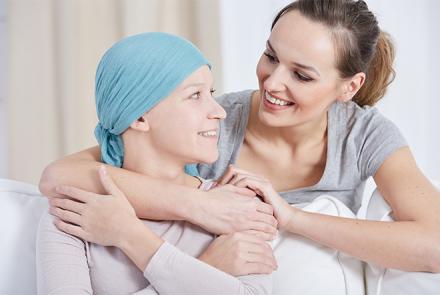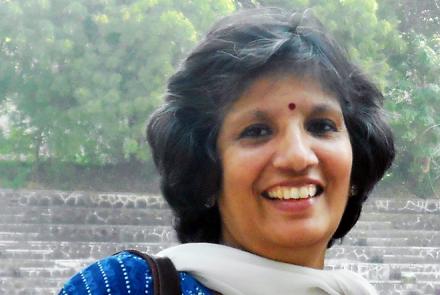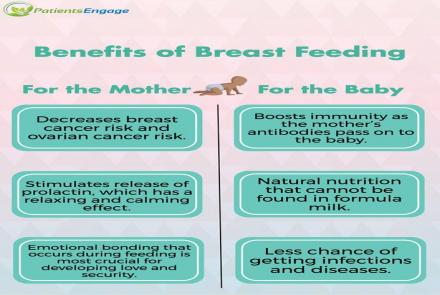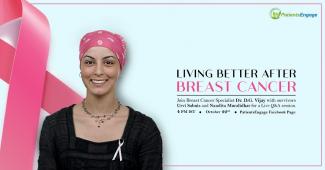
Nothing could be better than receiving valuable tips and strategies from cancer victors themselves to lead a meaningful and fulfilling life after breast cancer. We share key highlights and take-aways from the recently conducted webinar by PatientsEngage on Living Better After Breast Cancer.
Diagnosis and treatment of breast cancer can be harsh physically and emotionally. But it is not the end. You can bounce back and restore a normal life again. There are many ways to move forward, stay positive and healthy post-surgery and chemotherapy.
PatientsEngage hosted the second of its webinar series on 22 October. The topic discussed was ‘Living Better After Breast Cancer’, a crucial and valuable area to delve into considering the high occurrence of breast cancer in India. A host of valuable tips and strategies were shared by the panellists - 2 strong women, who have successfully won over cancer, and an eminent doctor - on how best to put the past behind and move ahead wisely with new hope and optimism.
The essence of the hour-long discussion focussed on moving from being just a cancer survivor to a becoming a victor, to making life more meaningful and fulfilling after cancer. The featured panellists were articulate, candid and full of information and inspiration which livened the webinar and made it engaging.
Key Takeaways
- Breast cancer survivorship improving
- Lymphedema can be prevented
- Support groups help exchange energy
- All women eligible for breast reconstruction
- Use of prosthetics
- Pursue hobbies to relax
- Positive attitude important for healthy recovery
Nandita Muralidhar, a resident of Chennai, who was diagnosed with breast cancer twice, the first one eight years ago, said what saw her through on both occasions was ‘her funnybone’. “I tend to see the lighter side of every situation. It helps me be positive”, while Urvi Sabnis, from Ahmedabad, who survived cancer four years ago, was helped by her support group and fun loving attitude and busy lifestyle.
Throwing light on the rate of survivorship of breast cancer patients, Dr D G Vijay, director and breast cancer specialist, HCG Cancer Centre, Ahmedabad, said that the trend has been encouraging. Globally survivorship rates in all cancers, particularly breast cancer have been improving especially over the last couple of decades. This was due to various factors, namely increased awareness about lumps in the breast, larger presence of mammography and diagnostic centres across the country, improvement in treatment and better patient outcomes and debunking of many myths surrounding breast cancer that are helping women come out of the closet.
He also pointed out some of the short and long term effects of cancer treatment. Besides hair loss, some patients also undergo changes in the skin. Or there could be issues of related to lymphedema or fluid collection and swelling of the arm, change in menopausal status or cardiac issues.
For Nandita, her positive attitude kept her in good spirits and health post treatment. “You have to constantly tell yourself that the worst is over. That you are alive and becoming better every day.” She was fortunate to get an excellent physiotherapist, post-surgery who put her through vigorous, energetic exercises that kept her arm supple and mobile and saved from developing lymphedema. (Lymphedema is most commonly caused by the removal of or damage to your lymph nodes as a part of cancer treatment.) Also, she maintained that support groups play an important role in getting back on your feet. “Support groups help exchange energy, more than thoughts,” she felt.
Urvi, an avid yoga practitioner, was spared many of the side effects. Many people in her support group, had complained of memory loss after chemotherapy, but fortunately she was not affected by it. “I did the sirsha-asana or the head stand very regularly. That helped me.” According to her the best way to minimize side effects is to lead a healthy lifestyle, do appropriate exercises and maintain a positive outlook.
One of the topics touched upon at length was breast reconstruction after mastectomy. According to Dr Vijay, all women irrespective of the stage are eligible for breast reconstruction. “Our own philosophy has been to recommend breast reconstruction,” he said. But it is not very high on the priority amongst Indian women. The emphasis is on freeing oneself of the disease first. “Probably the best time to offer breast reconstruction is at the same time the patient undergoes mastectomy. We plan the incision accordingly, we have the plastic surgeon ready, we have discussed the options for breast reconstruction with these patients.”
While Urvi opted for breast reconstruction, Nandita preferred to use prosthetics. “I was a bit overweight and to maintain balance, aesthetics and quality of life, I preferred breast reconstruction,” said Urvi. Nandita on the other hand had a strong family history of cancer, and feared a reoccurrence. “As luck would have had it, I had a reoccurrence 2 years back.” I use a prosthetic. I have no issues with it. There are special bras available where there are pockets for the prosthetics. Initially you are a bit conscious, but over the years I have become comfortable with myself.”
In India, unlike in the West, a lot of patients are young below the age of 50 who are developing breast cancer. Fortunately, nearly 50 % of patients come in early stages who do not need mastectomy. We do breast conservation surgery; we remove the lump and lymph nodes if they are involved. In case of mastectomy, we recommend breast reconstruction, especially if the women are young.
At the end, both Nandita and Urvi happily share their philosophy and outlook on how to be healthy and happy cancer warriors and victors. “Take one day at a time; take one step at a time. Do not overthink and go too far ahead,” says Nandita. Urvi finds rest and relaxation in pursuing activities and hobbies that she likes like yoga, singing.
What is important to remember is that breast cancer and the ensuing treatment is a transient phase, and quickly passes with time. There is no need to get despondent. As Urvi beautifully expressed it - If life is like a book, the breast cancer phase can be viewed as just a few paragraphs.
So, chin up!!



